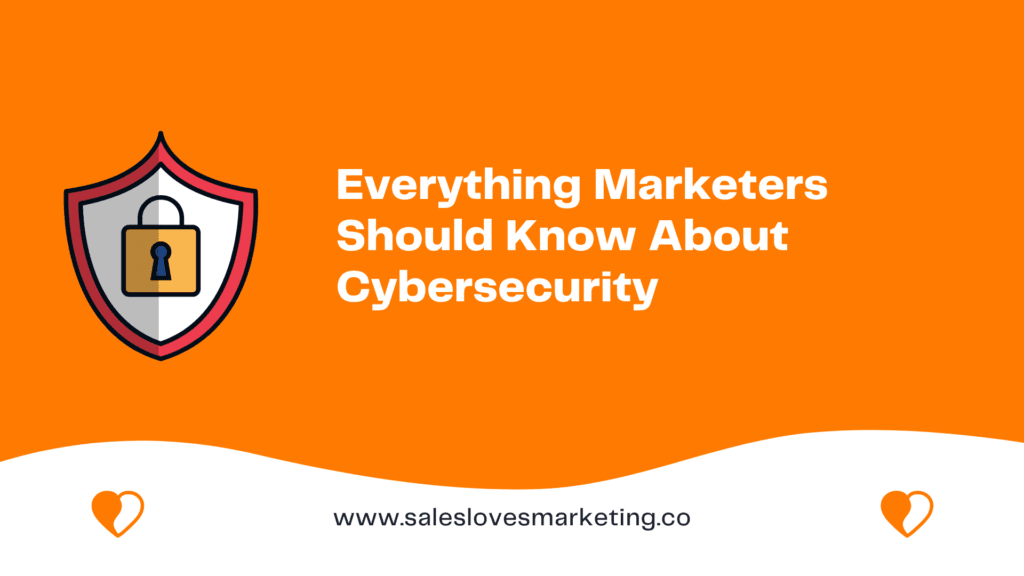Cybersecurity isn’t exactly the first thing to come to mind when you think of marketing. Why would it? Marketers have so much on their plates: social media campaigns, website optimization, blog posts, etc. Well, cybersecurity should be part of every successful digital marketing campaign, and soon you’ll know why. In this article, you’ll figure out why and how marketers can take advantage of cybersecurity to increase sales and customer trust.
Cyber attacks have been growing recently
Cyber attacks have increased tremendously during the past couple of years as more and more companies have taken their business online. At the beginning of the COVID-19 pandemic, malicious emails received by companies worldwide increased six-fold. And no, these numbers don’t seem to be slowing down.
When a company is attacked with malware, the outcome can be horrible for marketing. If you get hit by ransomware, it can result in the loss of access to social media accounts or sensitive customer data being leaked. Sounds like a nightmare, right?
As a marketer, it is your responsibility to not only increase sales and brand awareness but to maintain your brand’s reputation. That means keeping your business safe from malicious actors. Later on in the article, you’ll learn various cybersecurity techniques to employ in your company. Once you implement these techniques, you can communicate how secure your company is and how safely you store customer data, which is always a plus in marketing.
Digital marketers rely on the safety of their website and social media accounts
As a digital marketer, have you ever stopped to think about how safe your important passwords are from hackers? If you haven’t asked yourself this question, it’s likely that they aren’t very safe. Considering how detrimental it would be to your business if your social media accounts or website got hacked, it’s essential you follow these two password security rules:
- Secure your passwords. Passwords are the first thing to look at when considering your business’s cybersecurity. Easy passwords reused across accounts are just like an invitation for hackers to come over and take any data they’d like. A password manager is a simple yet powerful tool in protecting all business data, and they’re as convenient as ever. For example, you can download a special Chrome password manager to secure your sensitive data and accounts. The password manager will always be available on your browser and auto-fill all of your business passwords for you.
- Set up two-factor authentication. Connecting an account to an external device is always a great way to secure crucial accounts. It makes it nearly impossible for hackers to access them, even if they hack your passwords.
Data safety is the cornerstone of customer trust
Successful marketers understand the importance of keeping their customers’ information safe, especially since only one-fifth of people trust big international companies to keep their data safe. Well, that’s totally understandable. After all, we keep hearing about data breaches from huge corporations like Yahoo, Microsoft, and LinkedIn.
It’s reasonable to believe that the smaller the company, the lower the trust that customers have in it. If even Microsoft’s data can be leaked, what are the chances for little companies that don’t have such huge infrastructure and cybersecurity budgets?
Well, marketers can take advantage of this mindset and convince users that their company has bulletproof data security practices in place. Of course, this means that you actually need to take some extra cybersecurity measures to make that true, such as:
- Encrypting your website. By getting an SSL certificate for your website, it becomes secure, and all data transmitted through it becomes encrypted. A website with an SSL certificate has the little lock icon by the URL. Users notice this symbol as a sign of security, and they put more trust into such websites.
- Not collecting too much data on customers. Your business should only store the data that is absolutely necessary. By limiting the amount of data collected on customers, you make potential data breaches less and less threatening. For example, if you have a mailing list and ask users to subscribe through your website, don’t ask for too much information. All you need is the name and email of the user. You don’t need their middle name, last name, or phone number. Same goes for any other data collection method.
- Managing access to customer data. To prevent data leaks from inside sources, you need to protect that data, even from your employees. The more important the data, the fewer the people who should have access to it, especially when it comes to customer data.
Conclusion
Now you know how important cybersecurity is in marketing. The growth in cyber attacks on businesses worldwide is not something to take lightly as a marketer. All of your hard work may go to waste one day if you end up being hacked and important data gets leaked. Try to stay updated on the newest threats in the cyber arena and always make sure to follow at least the most basic cybersecurity tips. We wish you lots of luck and security in your marketing campaigns!
